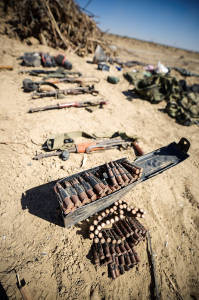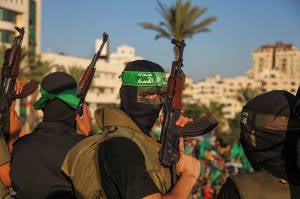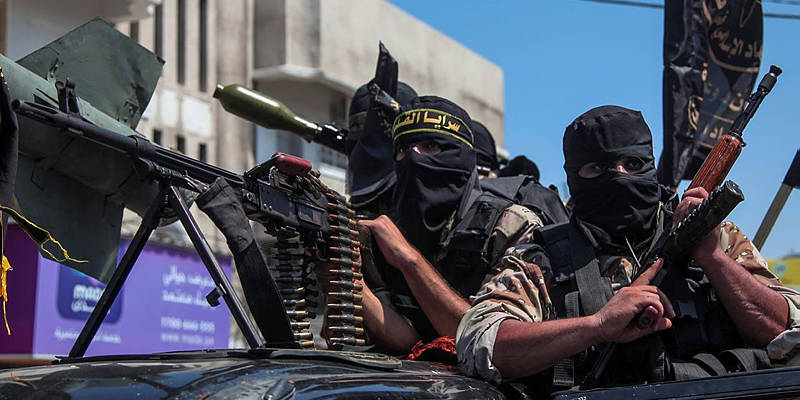Hamas is preparing to commit more terrorist attacks just weeks after agreeing to a ceasefire with Israel, according to an unnamed senior Israeli source.
Hamas may have agreed to a ceasefire with Israel two weeks ago but that did not stop its spokesmen from vowing to start replenishing its weapons storehouses immediately in preparation for another war against the Jewish state.
“We have not stopped making weapons, even during the battle, and we will redouble our efforts…to prepare for the next stage, which we hope will be the battle for freedom,” Abu Hamza, spokesman for Hamas’s Al-Quds Brigade, declared as the ceasefire took effect.
Now it appears the Israeli government has obtained proof that Hamas is smuggling weapons into Gaza, improving its own weapons-making facilities and rebuilding terror tunnels into Israel, according to reports circulating in the Israeli media, which quote an unnamed senior Israeli diplomat.
Hamas Prepping to Fight Again

Weapons discovered in Hamas terror tunnel in August 2014. (Photo: IDF Spokesperson/Flash90)
“Hamas did not wait a single moment after the last round of fighting and began its rearmament in anticipation of another round,” the diplomat said on Sunday. “They are already preparing themselves.”
Other security personnel have reportedly refused to confirm this information to the media.
Throughout Operation Protective Edge, which Israel launched as a defensive military response to Hamas terrorist rockets being fired into the Holy Land, Prime Minister Benjamin Netanyahu insisted that one of its end goals was to demilitarize Gaza. However, Foreign Minister Avigdor Liberman dashed those hopes in statements made to the media on Sunday.
“There won’t be any demilitarization in Gaza,” said Liberman, adding that such an expectation is “unrealistic at this time, although the issue will remain on the table.”
Neither was Liberman optimistic about the prospects for a long-term peace agreement with Hamas. Although both Hamas and Israel agreed to the ceasefire, the Egyptian-brokered arrangement stipulated that negotiations over other issues would resume within a month.
Long-Term Truce Unlikely

Hamas terrorists rally in Gaza, Aug. 27, 2014. (Photo: Emad Nassar/Flash90)
“I don’t think we can reach an agreed-upon mechanism with regard to the payment of salaries [of Hamas members] in Gaza or the strengthening Hamas,” said Liberman. “They will continue to manufacture and smuggle weapons and then how will we stop their strengthening? Any ceasefire, in my opinion, will be limited in time.”
There is a great deal of instability and uncertainty in the region, Liberman said, with complicating factors such as the growing power of the Islamic State (IS) terrorist group, the increased popular support for Hamas among Palestinians in Gaza as well as in Judea and Samaria, the breakdown of the Palestinian unity government and the political weakness of Palestinian Authority President Mahmoud Abbas.
“Without new elections in the Palestinian Authority, we cannot take any far-reaching measures with the Palestinians,” he said.
Author: Joanne Hill
Staff Writer, United with Israel
